Features
Everyone loves a good comeback story –The Karate Kid, Coach Carter—but few people are willing to put in the hard work to actually come back. Eta Phi’s (Cal State Los Angeles) comeback story is filled with as much conflict, struggle and triumph as any Hollywood movie. Located in Alhambra, California, just 15 miles east of Hollywood, the almost 100-year-old fraternity house is the perfect setting for this remarkable tale.
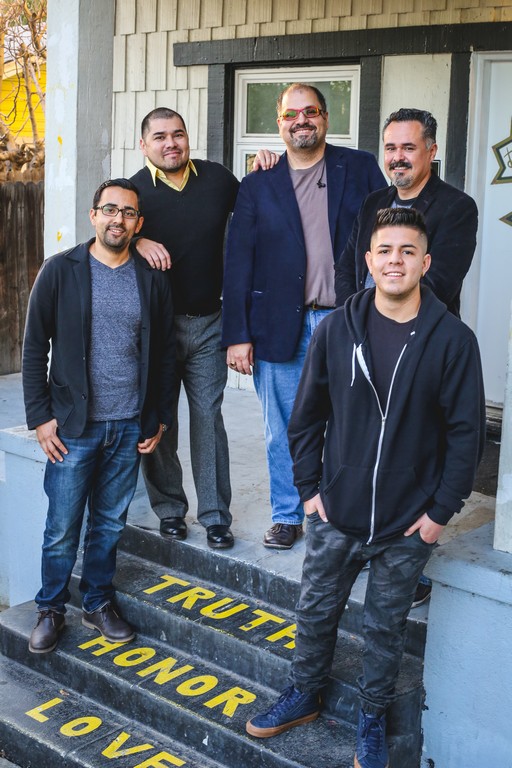
Left to Right: Diego Silva, Hugo Barraza, Dr. Tim Huerta, Ron Sais, Ronnie Peralbo.
It’s clear that the brothers of Eta Phi take pride in their house. The smell of Pine-Sol® greets me as I enter the front door. One member sweeps the floor to erase evidence of the week’s traffic; another dusts the flat-screen TV and cadre of remote controls and game consoles. I quickly learn that this Saturday morning is an all-hands-on-deck “power day” to fix up the house. Their commitment is noteworthy, especially when I walk into the bathroom and discover faux-wood fixtures and an overall level of cleanliness that make me feel at home. I smile; their parents would be proud.
As I speak with members and alumni, it’s clear that the changes at Eta Phi haven’t been purely cosmetic. They have been foundational. How did this chapter go from being on the brink of losing its recognition from Sigma Nu Fraternity in 2012 to receiving the Most Improved Chapter award in 2016? A whole lot of alumni support and a whole lot of hard work.
Eta Phi’s Eminent Commander Ronald “Ronnie” Peralbo is forthright about his chapter’s fledgling days: “We were unrecognized by California State University, Los Angeles from Fall 2012 ‘til Fall 2014.” He cites a few violations of university policy as the reasons, which included past administrations failing to register events properly. Although CSULA had removed Eta Phi from its rolls, the General Fraternity continued to recognize them, in an effort to help the chapter rebuild, but handed the reins of its leadership to its alumni.
“It’s like we had been excommunicated from the larger Greek life,” Ronnie continues. But he quickly discusses the upside: “The good thing is that we had a lot of time to focus on ourselves. That’s when we did our first remodel. The interior is up to date now.” He’s right. It’s contemporary, boasting hardwood laminate floors, a modern kitchen, and a sleek glass dining room table. It contrasts the exterior, which reveals the house’s true age.
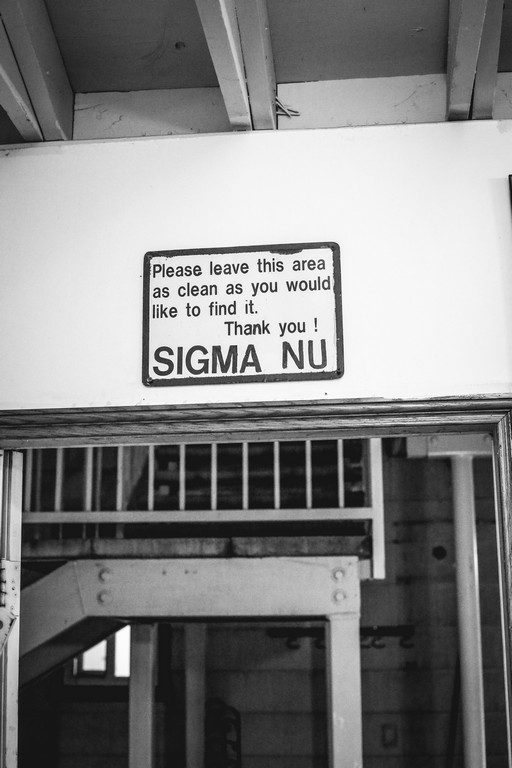
At one point during those rebuilding years, there were only about seven active members, according to Ronnie, “One person would have like four or five jobs.” They needed more manpower. Worthy Commander Hugo Barraza shares: “That’s where we came in—the alumni. We did a massive email to the alumni and … raised $10,000, which lasted two years.” This money gave Eta Phi the ability to reduce its debt and produce recruitment events despite low membership numbers.
Historically, managing finances has been this chapter’s Achilles' heel, with new leaders commonly inheriting massive amounts of debt. Ron Sais, Treasurer of the Alumni Chapter, recalls: “We remember entering commandership with $14,000 in debt. We would always go through these peaks and valleys.”
When the brothers of Eta Phi entered this particularly dark valley in the fall of 2012 and needed an especially strong leader, Dr. Timothy Huerta, Alumni Advisory Board Chair, stepped up. Ron says Tim is the one who “really put process and structure into place.”
Tim—affectionately called “the man” by Ronnie—created a financial management system that helped erase all of the chapter’s debt and built a surplus. He and the Treasurer transformed the cash payment dues system into an electronic system that would provide a paper trail. Additionally, they created a protected bank account for the chapter to hold dues earmarked for the General Fraternity. The chapter’s commitment to this new system has not only left them with a surplus, but also positioned them as a financial model for other chapters.
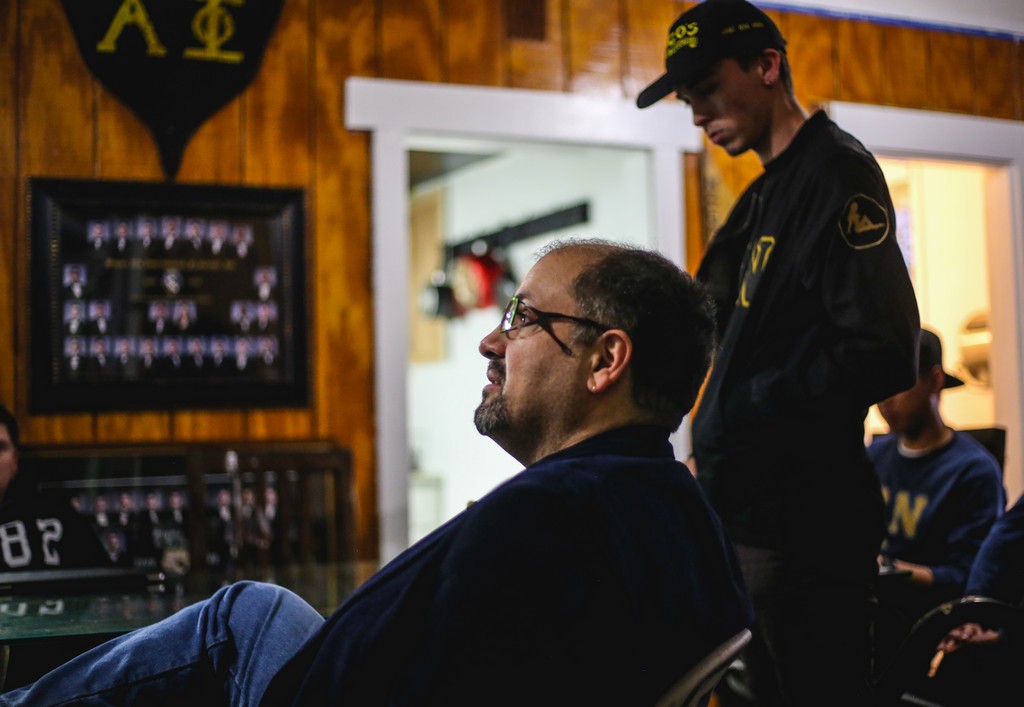
Fixing the finances, however, was just one part of their turnaround. Their list of needs was extensive, but at the top of that list was strong leadership.
German Arteaga ran for Eminent Commander in Spring 2013. Once elected, however, he realized leadership required more than a desire to see change. It required making difficult decisions: “We had about 20 people who wanted to join, but I knew that some of them were not the kind of people we wanted. We offered bids to only three of them.” Although choosing quality over quantity was best in the long-term, the chapter felt the immediate consequences of such a small pledge class.
Fred Dobry (Indiana State), Director of Risk Reduction, offered German sage advice, “Find ways to keep your members motivated.”
Recognizing that a change in the house’s physical appearance would boost morale, their Leadership Consultant Matt Miller (Mount Union) asked Cal State Fullerton alumnus Joe Baxter to make a contribution for a remodel of the house’s interior. Broken drywall and murals from the ‘70s and ‘80s adorned the walls, while 20 years of spills decorated the carpet. Brother Joe agreed and called German with the good news, “I want to donate to re-establish your chapter home.”
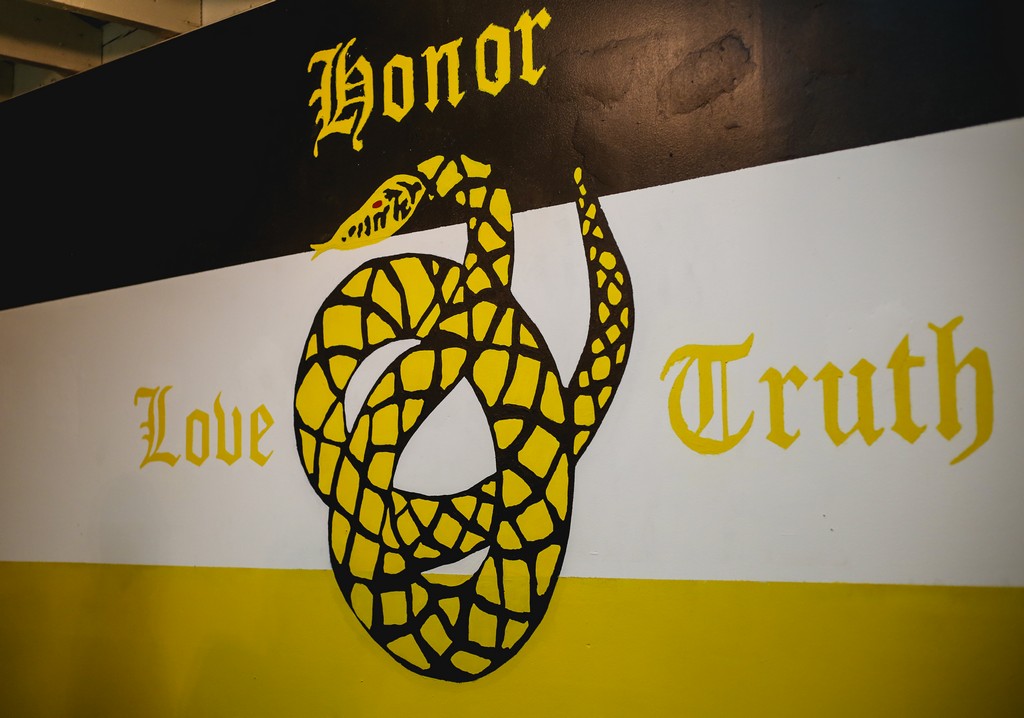
But before the remodel could start, the drywall in the attic needed to be torn down. Matt asked German to assemble a crew to get the job done, but only a few stepped up. German recounts how difficult this seemingly simple home improvement project was: “It took eight, nine hours a day. Only a few of us were working. Our members wanted change, but they didn’t want to put in the work. I called Matt and said, ‘Hey, I can’t do this anymore. I wanna give up.’”
Matt mentored him through this valley by asking two simple questions: “Where do you guys want to be a year from now? Two years from now?” German credits this conversation as a defining moment for his chapter. They answered Matt’s question during a chapter meeting: “We want to be recognized by the fall.”
This singular goal catapulted the group’s motivation. They created a plan, but more importantly, they implemented that plan. The first order of business was to heed the advice of their alumni network. “They wanted to get pens that had Sigma Nu’s name on them [to recruit],” Ron shares, shaking his head. “They wanted to get shades … but then, finally, they said, ‘Let’s do a Burgers and Bros,’ and we said, ‘Okay, that’s a good idea.’”
Diego Silva, Division Commander, Southwest Alpha, insists that although alumni helped, they didn’t “come to the rescue.” He says that they simply held the chapter accountable: “Tim facilitated a lot of good, self-reflective conversations with them...if they didn’t put in the hard work, then they would experience the consequence of that.”
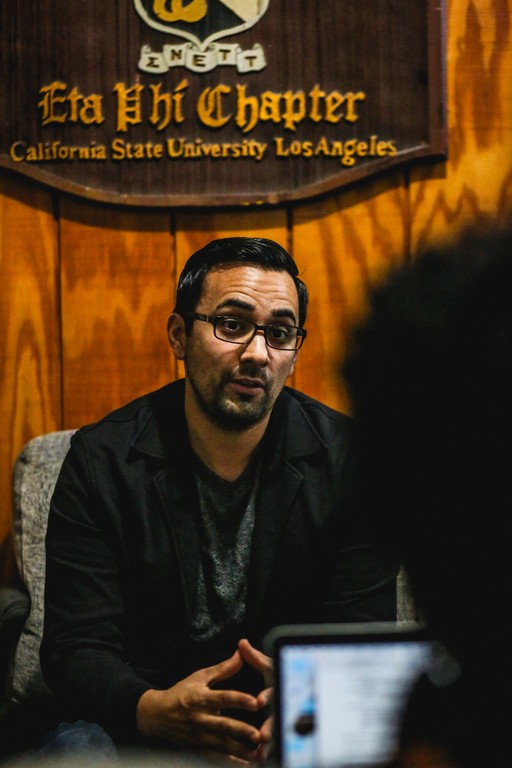
As the alumni held the chapter accountable, the chapter learned to hold itself accountable. Tim witnessed this first-hand, “We had successful leaders in the chapter who were willing to do unpopular things.” Leaders required members to pay their dues, honor their word, and adhere to Sigma Nu’s tenets.
“They started doing all of the things required by the Fraternity, especially the LEAD Program,” Ron adds. The chapter hosted leadership events and programs to serve the Alhambra community. Their Nu Games program and banquet, which yields $5,000 annually by challenging CSULA’s sororities to out-fundraise each other, is one example of how the brothers of Eta Phi combine leadership to their campus and service to their community.
Ron continues, “They finally started to try to be a Rock Chapter. It wasn’t just a hope or nice idea.” The chapter went from an average fall rush class of 10 to 12 members, with six to seven in the spring. “Now they’re recruiting like 20-plus in the fall,” Ron brags. “They’re constantly growing. That’s more manpower, more leaders being developed.”
Ronnie is especially proud of the change he’s seen in his chapter, as he’s been a member since 2011: “We just had a leadership retreat for all the Greeks at CSULA. We got a lot of praise. They know that we’re not perfect, but they know that we’ve worked really hard.”
Sigma Nu Fraternity recognizes that they’ve worked hard, too. In summer 2016, Eta Phi received the following awards: Most Improved Chapter, Excellence in LEAD Phase II, Excellence in LEAD Phase III, Excellence in LEAD Phase IV, Excellence in All Chapter LEAD, and the PEP award for Excellence in Personal Development and Membership Value.
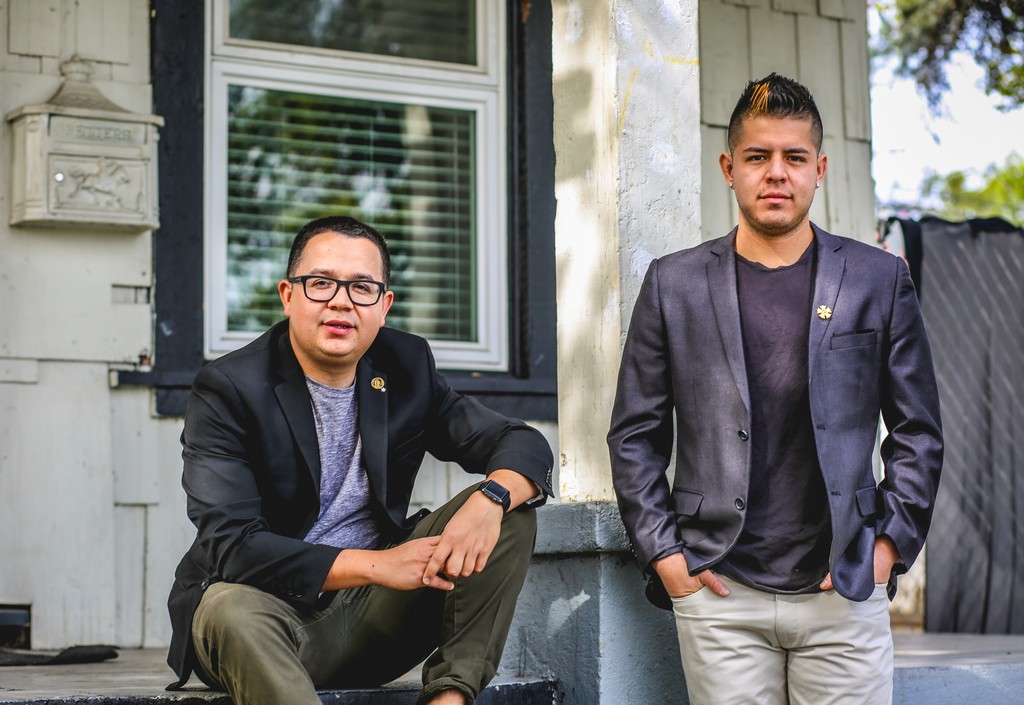
German Arteaga and Ronnie Peralbo led the collegiate effort to revive Eta Phi Chapter.
Ronnie promises that the brothers of Eta Phi will continue to serve as role models for their campus: “We’re Sigma Nu. Our focus is being a good chapter, one that people can look up to. I feel like I’m held to higher standards now. I feel like I have to be the example. We have a lot of people looking up to us, and we don’t want to let them down.”
One particular group they don’t want to let down is their alumni network. “If we improve the interior of the house and improve participation in the house,” Ronnie shares excitedly, “our alumni will pay for the exterior remodel.” He and his brothers are as intent on getting that remodel as they are on making their alumni proud. They are happy to do the internal work that will yield an external reward.
Their story is a remarkable comeback tale with an ending that is still unknown, but what is clear is their vision for their future—being a Rock Chapter. Regardless of the outcome, their present success commands respect, according to Ron. “Just the fact that we’re being featured in The Delta—this is pretty monumental.”